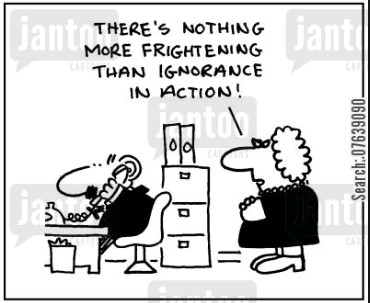Most people that get into trading do not have the necessary tools to make it in this business. The problem is not that they are not intelligent or dedicated enough but most commonly that they do not have the necessary knowledge in mathematics and statistics to understand what they are seeing and develop methodologies that can in the end lead them to success. The ability to run analysis, draw conclusions and from there build a plan that is statistically sound and with a strong enough probability to have a long term edge eludes most new traders. Today I want to talk about what I believe is a good plan to build tools that will become invaluable for a new trader, a course following plan seeking to develop the fundamental knowledge needed for trading. Going through these courses does not guarantee that you will be successful but it will ensure that you will have the ability to answer questions thoroughly from a statistical perspective and therefore the ability to avoid falling into traps and vicious cycles.
–

–
Many trading blogs and forums generally attribute trader success to things like “being consistent”, “following the plan”, “having a system that matches your personality”, etc. In the end being a successful trader only depends on having a sustainable long term edge and whether you can achieve this or not depends on whether you can indeed develop one. Developing a real edge that is sustainable under unknown market conditions requires that you understand how to design experiments, analyse data and figure out whether your current approach is correct or not and what you would need to change in order to improve it. This requires that you know how to use the tools available for these tasks (mainly that you know how to program) and that you understand how different types of bias affect your experiments.
If you want to be a successful trader – particularly a quantitative trader – you need strong skills in the above areas. This does not mean that you need to have a major in mathematics or statistics but simply that you need to be able to understand the fundamental aspects of the above and understand how to use their tools and apply this knowledge to trading. If you have the full disposition to become a trader then I have chosen a 40 hour/week workload that will take you from having no resources to having a shed full of sharp tools at your disposal to tackle problems in the trading domain. If you want to take trading seriously and become a professional at it then the following four coursera specializations are my recommendation to start (in the order given):
- Data science (9 courses) (422 USD)
- Data mining (5 courses) (474 USD)
- Machine learning (5 courses) (426 USD)
- Investment Management (4 courses) (355 USD)
In total the above specializations have a combined cost of 1679 USD but they will teach you many core knowledge aspects that will be tremendously useful in trading and other areas. If you cannot do more than 1 course at a time – because you’re very busy or have monetary constraints – then start with the data science specialization. This specialization will teach you how to use R and how to properly process data and run experiments such that you will be able to start answering questions in the trading domain that interest you. For example you may want to know if the “shooting start” candlestick pattern does lead to reversals in a statistically significant manner and the contents of that specialization will allow you to have the ability to seek answers to questions like these. This course also contains some of the most basic aspects of the other two specializations so it’s a very good basic formation to continue your learning process.
With the second and third specializations you will move to studying data and being able to learn things from it at a more advanced level. You will be able to start answering questions like: how do I develop a system that can predict tomorrow’s direction? or what is the most relevant variable in attempting to predict volatility? With this knowledge you will be able to start data-mining price data to search for edges and – with the knowledge you already learned in the first specializations – you will be able to understand the relevance of those edges and tackle things like data-mining and curve-fitting bias.
–

–
The last specialization is focused on finance, seeking to provide you with a formation of how the markets, investments and portfolios work in general. With this you will get a basic formation about risk management, portfolio management and return to risk evaluations. After you go through this specialization you will have a good view of the potential array of long term performance available in the world markets, the importance of limiting risks and the way in which this is generally done in traditional investing management. It is a necessary compliment to the courses before as it centers you into finance and provides a basis from which you can start building.
The above is just the start. It will take lots of time and effort but in the end you will have a formation that will be useful for many other things in your life – not only trading – and that will allow you to tackle trading problems in a much more formal and reliable manner. You no longer need to “hope” that a system is “the right system” or that it “fits your personality” but you will have the tools to make tests and figure out whether there is an edge or not and trade accordingly. If you would like to learn more about trading and how our community has approaches the trading system building problem during the past 6 years please consider joining Asirikuy.com, a website filled with educational videos, trading systems, development and a sound, honest and transparent approach towards automated trading.strategies.





Great article as usual – as someone who majored in math/stats, there are a lot of practical information in those data science/machine learning online courses which are not covered in a typical math/CS degree. IMHO would be a useful source of knowledge regardless of background.